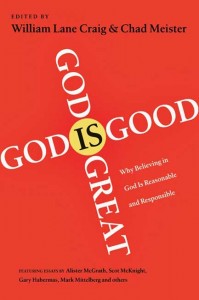One of the things that I learned in seminary is that every preacher’s sermon preparation process is different. Mark Driscoll recently shared that he spends about an hour of prep, and then preaches for an hour as he externally processes the text. That’s great for Mark, who has a photographic memory, but it sure ain’t gonna work for me. I don’t have a photographic memory and I’m not an external processor, so my sermon preparation takes a lot longer than one hour.
The first thing that I do is prayerfully choose a text. Because Ember is going through books of the Bible, I’ll generally read the whole book through at least once. (I read Jeremiah once the whole way through, but for a book like Titus, which is going to be our second series, I’ll read it through several times.) Once I become familiar with the whole book, I’ll break it up into sections. I’ve had to be choosy with Jeremiah, so I picked those sections which I felt were, a) most preacheable, and b) presented a holistic picture of the book.
 |
| The first page of my notes on Jeremiah 1 |
Once I’ve picked a text, I print it out in a format that I can mark up and take notes on. As you can see from the pictures, I take a lot of notes. I’ll write down everything I think of, from the antecedents of important pronouns to insights that I glean from the text. This is probably the most important step of the process, as I am hoping to fully immerse myself in the Scripture I’ll be preaching. I want to know it inside and out. I want to hear the voice of the author. I want to feel the heat of the sun under which he first penned or spoke these words. I want to feel the heart of God as he reveals his word through that author. I want to know the author’s world, and the first audience’s world, so that I can know how this text makes sense in my world.
 |
| The second page of my notes on Jeremiah 1 |
I let Fee & Stuart’s core principle drive me as I study the text: The Bible cannot mean what it never meant. I want to understand how it was God’s word to those original readers so that I can know how it is God’s word for me and my congregation. This is the process of exegesis, which basically means that the preaching is trying to draw the original meaning out of the text, rather than to put his own meaning into the text.
After studying I go through what I call The 7 Good Questions, which, apparently, I’ve never posted here at the blog. This is a fuller process of exegesis of which the above is the answer to just one of the seven good questions. The seven questions are:
[list]- What am I reading?
- What do I see?
- What is the literary context?
- What is the historical context?
- What is the biblical context?
- What is the principle?
- How do I apply this?
After answering those questions, I move on to what I call Sermon Notes, where I put together a structure and flow, come up with a title and a big idea, pull out the key verses, and write a brief synopsis. Then! Finally! I begin writing the sermon after, once again, inviting the Holy Spirit to fill me, to speak to me, and to speak through me. I’ll generally go through two or three revisions of the sermon before I feel good about it. The last step is to preach it, either to my wife or to a wall, and then make any final changes. It’s a long process, but it’s a lot of fun for me, and well worth the time.

